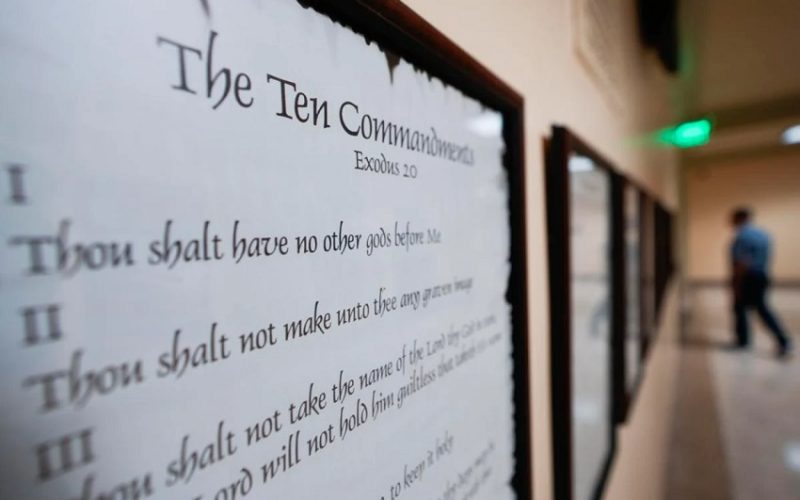LOUISVILLE, Ky. — A group of 79 faith-based leaders in Kentucky is calling on Governor Andy Beshear to veto a bill that would permit the installation of a Ten Commandments monument at the state Capitol. The bill, House Joint Resolution 15, has already been passed by both the Kentucky House and Senate and now awaits Beshear’s signature.
In a letter addressed to the governor, the coalition of religious leaders, which includes representatives from organizations such as the Interfaith Alliance, the Baptist Joint Committee for Religious Liberty, the Sikh Coalition, and the National Council of Jewish Women, argues that the monument could undermine religious equality in the state. They contend that the display of the Ten Commandments at the Capitol could be seen as an endorsement of one particular religious tradition, potentially alienating those of different faiths or no faith at all.
“The Capitol is the seat of our state government and should be welcoming to all Kentuckians, regardless of their faith,” the letter reads. The leaders further express concern that the monument could be interpreted as a symbol of religious intolerance, particularly in a state that prides itself on its diverse communities.
Supporters of the bill, however, argue that the Ten Commandments have historical significance and that their presence at the Capitol would honor the values upon which the country was founded. The resolution is part of a broader trend seen in other states, where lawmakers have pushed for similar displays of religious symbols on government property.
Governor Beshear, a Democrat, has not yet indicated whether he will sign the bill into law. His decision is expected to have significant implications for the relationship between religion and government in Kentucky. Faith leaders across the state are watching closely, as a veto would affirm the importance of maintaining religious neutrality in public spaces, while a signature could set a precedent for future legal battles over religious symbols in government.
As the debate over the Ten Commandments monument continues, it underscores the ongoing tension in the United States between the protection of religious freedoms and the need to ensure government spaces remain inclusive and representative of all citizens.











